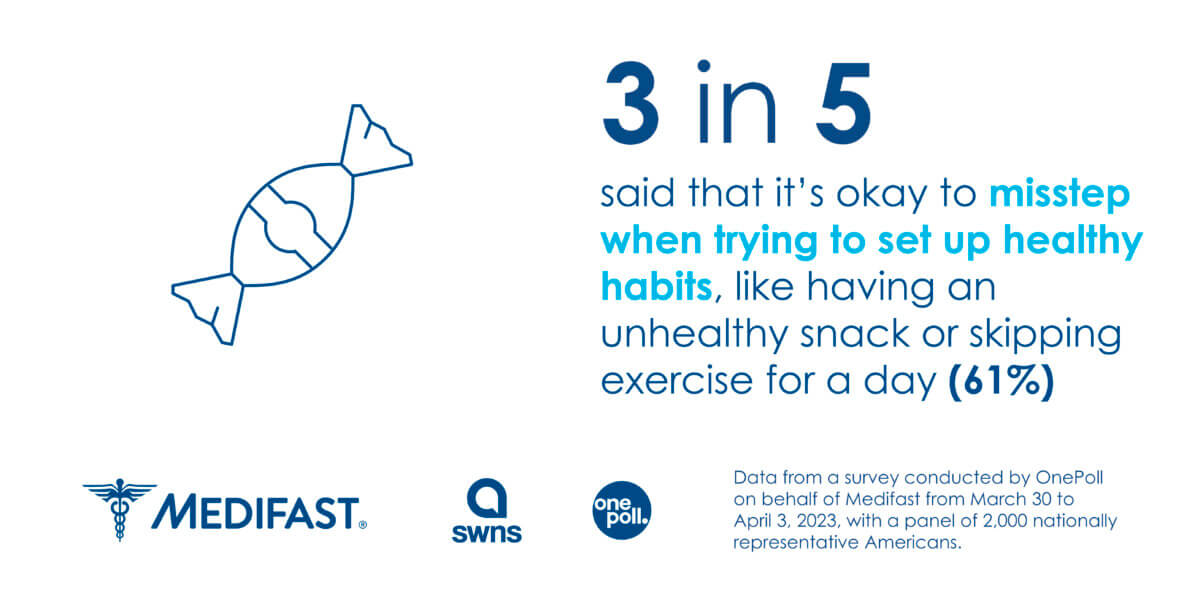NEW YORK — Forget once-a-month bubble baths — new research shines a light on smaller daily acts of self-care. A survey of 2,000 Americans finds more than half (52%) agree that “self-care days” are only temporary fixes compared to practicing smaller daily habits.
When it comes to what self-care is, 64 percent of U.S. adults think of it holistically as balancing all aspects of health or creating habits that contribute to overall well-being. While eight in 10 respondents say practicing daily self-care habits is a priority, 41 percent have let them falter over the past year. More than two in five (44%) believe it is difficult to balance all aspects of their health. One-quarter of all respondents (24%) even claim they don’t have time for self-care on a regular basis.
Those struggling to prioritize self-care cite being too preoccupied with household chores and responsibilities (56%), caring for their family (49%), and work (47%). Mothers in particular are having an even harder time, with 50 percent of those surveyed agreeing that, over the past year, they have let their self-care habits fall behind.
The survey, commissioned by Medifast, the health and wellness company behind the habit-based and coach-guided program OPTAVIA, also found that three out of five U.S. adults believe it’s important to have support from others when it comes to prioritizing self-care (63%).
“Consumers today have an abundance of information and options contrasted by little time and lack of support. People need simple yet comprehensive solutions that help them make a healthy lifestyle second nature, whether they are struggling to manage their weight or find time for healthy motion,” says Dan Chard, chairman and CEO of Medifast, in a statement. “Approaches that are scientifically designed, backed by experts and offer the support of a community will resonate as people continue to seek out realistic ways to prioritize their health and wellbeing.”

Life happens, however, and many respondents acknowledged a need for more “self-care” time when feeling overwhelmed (41%), tired for an extended period of time (39%), or easily irritable (38%). They also feel forced to prioritize self-care when recovering from an illness (34%) or facing financial hardship (25%). It isn’t just major events that drain us, others prioritize self-care more when facing pressure at work (20%), after a breakup (19%), or even after a disagreement with a loved one (18%).
Overall, 36 percent of those surveyed are making it a top or high priority to practice self-care every day, like staying hydrated (48%), having a positive mindset (46%), going outside (43%), and getting quality sleep (36%). Respondents also cited areas in which they need the most care, including exercise (33%), sleep (28%), and mental and emotional health (27%).
While three in five (61%) acknowledge that it’s okay to misstep when trying to create healthy habits, like having an unhealthy snack or skipping exercise for a day, 35 percent say they’d feel discouraged or ultimately give up if they fell off track.
“In a fast-paced world, many expect instant gratification and are focused on quick fixes, which leaves them feeling discouraged when they don’t experience immediate results,” says Satya Jonnalagadda, Ph.D., MBA, RDN, vice president of scientific and clinical affairs at Medifast. “Staying persistent and motivated can be difficult, so it’s not surprising that people tend to be more successful in reaching their health goals when they have the support of a coach and community.”
Survey methodology:
This random double-opt-in survey of 2,000 nationally representative U.S. adults was commissioned by Medifast between March 31 and April 6, 2023. It was conducted by market research company OnePoll, whose team members are members of the Market Research Society and have corporate membership to the American Association for Public Opinion Research (AAPOR) and the European Society for Opinion and Marketing Research (ESOMAR).




